A conference resting on the topic of the renewal of tension in the Arabo–Persian Gulf was organized by the geopolitician Frédéric Encel and Paris School of Business, Friday, June 21 of 14:00 to 18:00, Colbert room at the National Assembly.
A program made up of 2 round tables of experts directed by Frédéric Encel, Doctor HDR into geopolic and professor in Paris School of Business, for the first and Hugo Billard, professor of geopolitics in CPGE, presenter on radio Notre Dame, director of school handbooks and lecturer in geopolitics and geoeconomy for the second, was organized around the Persian Gulf States and of the economy related to oil.
Following the many tensions which burst since of the months in the Arabo–Persian Gulf (Iran, Iraq, Kuwait, Saudi Arabia, Bahrain, Qatar, United Arab Emirates, Oman and a few kilometers of coasts with the enclave of Musandam), a conference was held placing the emphasis on the interference of the frontier countries and the development of the radical bunches which destabilize the area.
The first round table which was entitled: “Rustled of boots in the Gulf” the intervention of personalities saw on 4 topics related to the area: Allies of France in the Gulf with the reflections of François Loncle, former President of the commission of the Foreign affairs to the Parliament Nationale.Les challenges of the Strait of Ormouz by Nassima Ouhab, doctor of economy and teaching with Paris XL‘ Iran and its Shiite axis by Jean–Sylvestre Mongrenier, researcher in Institut Thomas More. Which role plays Hezbollah? by the independent journalist Emmanuel Razavi.
Situation and challenges, impacts national and international were approached there just like the interference of the bunches and the foreign countries.
The second round table had as a main idea, “the Persian Gulf in all its States” and related to geopolitics: Houtis in Yemen by Khatar Abou Diab, research professor in Paris XII.Géopolitique maritime of Iran by Hugues Eudeline, captain (CR). The challenge complexes of Turkey by Nora Seni, professor of the universities in IFG.Les Emirates, a rising power by David Rigoulet–Roze, doctor of science policies.
Graphs with the support, the risks dependent on oil and its trade through the sphere were shown.
In addition, the town of Trouville (14), will accommodate the next June 29th and 30th, the 4èmes meetings of geopolitics whose topic, this year will be “the borders”. Placed under the high patronage of the Foreign Minister, Jean–Yves Le Drian, they will propose 8 round tables.
At the time of the conference of May 21st, the first intervention was that of François Loncle, politician who replaced Mendès France after the death of this last in 1982. “Since the end of the Second World War in 1945, the power struggles dominate… and should be founded an international strategy: Russia blocks, China wants to change but with its interest”. Thanks to Jean–Yves Le Drian (with the defense of 2012 to 2017 pennies the five–year period of François Hollande then to the Foreign affairs since 2017 and the election of President Emmanuel Macron), the dialogue is easier vis–a–vis presidents Trump and Bolsanéro. France wants to keep the link with the Persian Gulf some are the difficulties. The attacks of May and November 2015 marked France and the terrorist threat djiadist of Daesh reached Mali and the old colonizing countries. G5 the Sahel is long in being spread so much from the point of view political, legal, ideological, economic; France consolidates its European commitment compared to certain countries of Europe which seek division.
Concerning the sale of weapons, their exploitation brings the sovereignty and the capacity of renewal. Thus in Yemen, the coup d‘etat is supported by Iran, Al–Qaida (terrorist organization islamist of inspiratiion Salafist Jihadist rested in 1987 by the sheik Abdullah Yusuf Azzam and its pupil Oussama ben Laden) and Daesh (terrorist organization, soldier and policy, of Salafist ideology Jihadist having proclaimed on June 29th, 2014 the introduction of a caliphate on the territories under its control). At the beginning of June, Abou Oussama al–Mouhajir and other members of Daesh to Yemen were stopped by a commando saoudo–Yemeni.
Saudi Arabia and the United Arab Emirates have as for them a strategic partnership which respects the proposal of Europe on the armaments, each vote studies the proposals point by point.
Iran, on its side follows negotiations with the United States without France and Germany and one can note at the latter a common point: will to be present to prepare peace while following a line which can last and continue.
The second point touched the strait of Ormouz, its economic issues, policies and soldiers. Located between the sea of Oman and the Indian Ocean, he is the Master of the situations of the Gulf, in particular for oil (each day, 19 million barrels forwards by the strait is 90% of the productions coming from Saudi Arabia and 98% from those from the United Arab Emirates mainly from Kuwait and Barhein, but also liquid gas of Qatar).
Since the withdrawal of the United States of the Iranian nuclear agreement of July 14th, 2015, increasingly strong pressure on Iran was put by the USA. In spite of the threats of May 8th, 2019 of Teheran to grant a 60 days deadline to the other signatories of the agreement to maintain their commitments and to allow Iran to be able to sell her oil in the world, the EU tried to circumvent the sanctions of Washington by creating Instex, a supposed entity to be used for the payment of the transactions between the European companies and Iran and to do without the American dollar in the international transactions. However Iran did not close the strait of Ormouz of which depend Oman, the USA and China and which makes it possible to Dubai to be the turntable for the goods coming from Asia. If the strait were blocked, it would have reached there with the sovereignty of the states. The Iran–Iraq war of 1980 to 1988, of the variations on the oil price as in 1986 when one noted a fall going up to 50%, marked this period; in 1988, the USA did not accept the blackmail and retorted by bombardments; in 1991, France, Belgium and the United Kingdom intervene vis–a–vis the Iraq–Kuwait conflict, the USA protect the region although their needs are not engaged and turn over to the Middle–East because of the war to Syria. In addition, if Iran wants to improve its economic situation, it must avoid a war where it would be the large losing one, however the night of June 20th, 2019, Iran cut down an American drone, which brings consequences on the region and of prohibitions to the nationals of certain Moslem countries to go to the USA.
The intervention of the journalist of Total Geo News, Emmanuel Ravazi, in whom it expressed the part played by Hezbollah (founded in June 1982, but revealed publicly in February 1985, this Shiite islamist group is also a political party based in Lebanon. Its paramilitary activities are supervised by the central Council Jihadist. The organization is sometimes described as “Shiite Jihadist). In this context, Hezbollah is the armed wing of Iran whose Israel and the USA are the subjects of their hatred. The Shiite axis is directed by the Iranians, with its allies, Syria and the Lebanese Shiite terrorist group of the Hezbollah, which succeeded where nobody of other succeeded since the First war of Lebanon in 1982. The starting point of the belligerencies in all the area is Afghanistan invades by the USSR in 1979.
Among the asked questions by the audience, the role of Qatar compared to Iran. There is a risk which comes from the organization of the “Guards of the Revolution” (forces defensive to protect the Iranian revolution, according to Teheran and terrorist organization according to Washington), knowing that Qatar tied relations with the Muslim brothers starting from 1949.
In the second round table, many graphs made it possible to understand what are the risks for oil in the event of closing of the strait of Ormouz, when it is known that 17% of the oil market, 12% exported natural gas and 20% of gas liquid towards the Asian markets come from Iran and of Qatar, that accounts for 50% of the production from OPEC and 70% of the Japanese imports, the supply for the USA is weak, 12% to 14% for France;
Hugues Eudeline, captain spoke about the exchanges made by setting sail. Indeed, the oceans account for 71% of the sphere and be in hiding 29%, Suez Canal and of Panama are the only means to make them communicate between them by knowing that 90% of the goods pass by the sea, the “New silk routes” proposed by China account for only 5% of the traffic. The shortest way between Europe and Asia remains the sea route. However, China and Russia work out the project to pass by the poles.
Nora Sini spoke about the complex game of Turkey; on a side, the reconciliation with Saudi Arabia against Iran, other sorrow for the death of the former president Morsi a few days ago. The strategy is based on the role of the woman in the company.
Concerning the municipal elections of June 23rd, the candidate of president Erdogan was beaten, the victory of the opposition put an end to 25 years of control of the camp islamo–conservative to the town hall of Istanbul, plus big city and economic capital of Turkey.
At the tourist level, Turkey was the first destination for the E.A.U and Saudi Arabia, however one notes a fall of 70% of the travel due to the hostility of the Saoudis.
After the Council of Coordination between Turkey and Saudi Arabia, 2 distinct groups were formed: Turkey, Saudi Arabia and Qatar (Pro rebellion) and Iran, Iraq and Lebanon (against). In 2017, Qatar disunites itself of Arabia and Turkey remains alone with the international one.
Another point of belligerency, Yemen with the internal conflict which opposes it to the Houthis rebels, (armed, political and theological organization zaïdite, activates initially in the governorship of Sa‘ dah and the North–West of Yemen, then starting from 2014, in all the country), supported by Iran. Khatar Abou Diab, research professor in Paris XII tried to explain the reasons of this civil war which began in 2004 in north from Yemen then in the south starting from 2014. These last weeks, the attacks of Houthis have multiplied against camps of the coalition carried out by the Saoudi army for more than 4 years.
Last topic approached, rise of the emirates. The latter wish to reinforce peace vis–a–vis the 2 threats which are the rise to power of the islamist currents in the context of Arab spring and the expansionism Shiite. Members of the military coalition in Yemen, taken along by Saudi Arabia since March 23rd, 2015, they had recalled their ambassador to Teheran in 2016 after the separation of Saudi Arabia and Iran; they are at the sides of Saudi Arabia, Bahrain and Egypt in the conflict against Qatar which supports the movements resulting from the Muslim brothers and his proximity with Iran.
In the assembly the moderate Imam Hassen Chalghoumi was which supported the visit of the Pope with the E.A.U at the beginning of year and which has just returned from a travel of peace organized to Ramallah and in Israel, accompanied by about forty young people Muslim of all France and 5 of Mollenbeck; they met Israeli dignitaries of which the President of the Republic as well as Ramallah. The goal of this travel was to show that it is possible to get along between Jews and Muslims.
Since its return in France, the Chalghoumi Imam which militates for the bringing together between Jews and Muslims, to start in its town of Drancy, but also against any form of integrism, still received death threats, to date 22, on behalf of integrist which treat it of collaborator and traitor whereas he is simply only one emissary of peace.
Views: 0


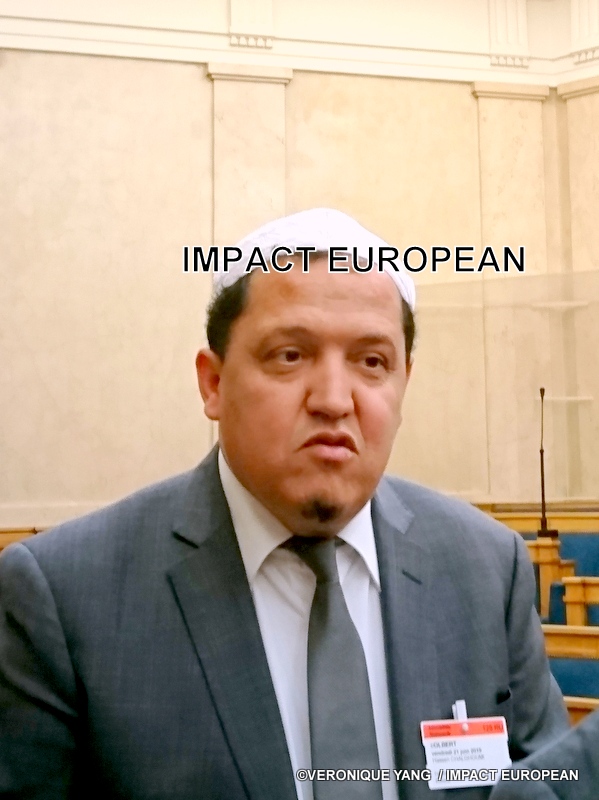
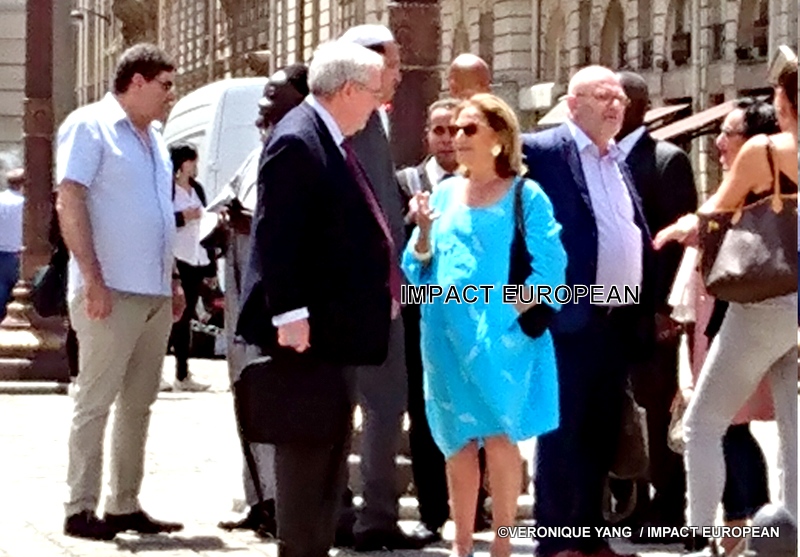
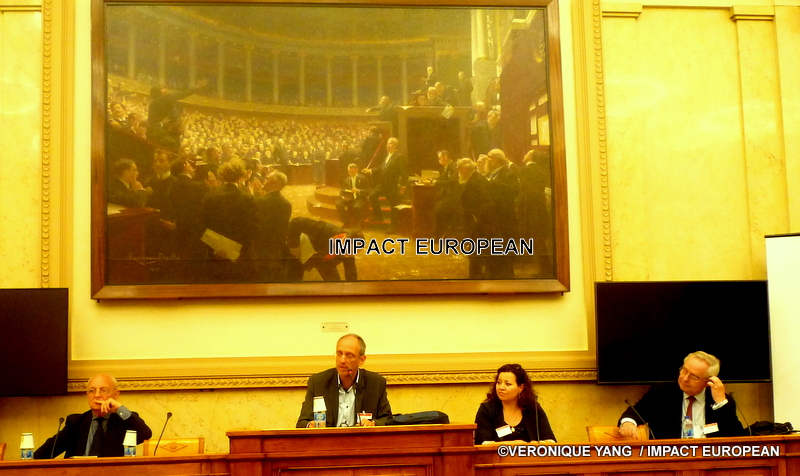
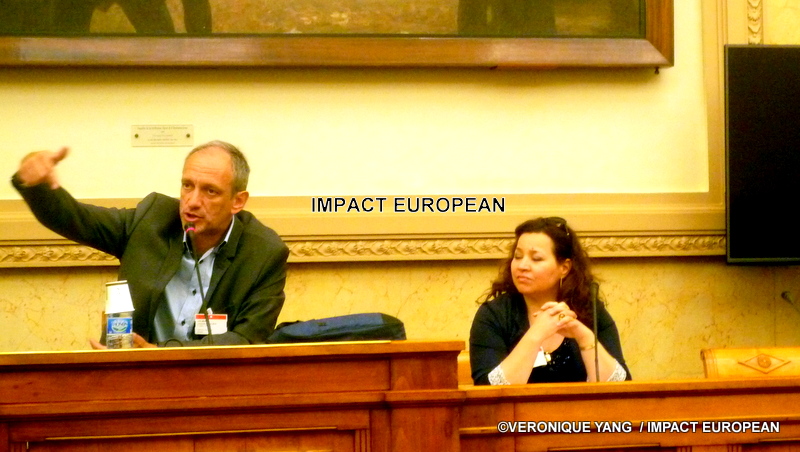
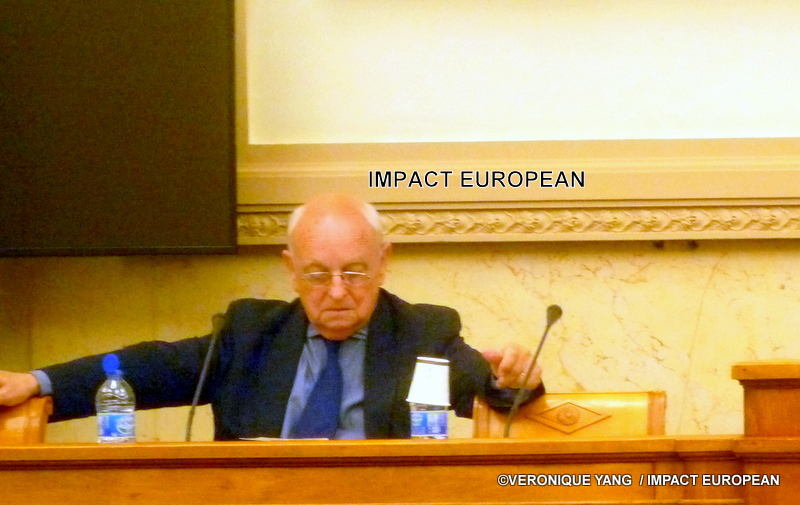
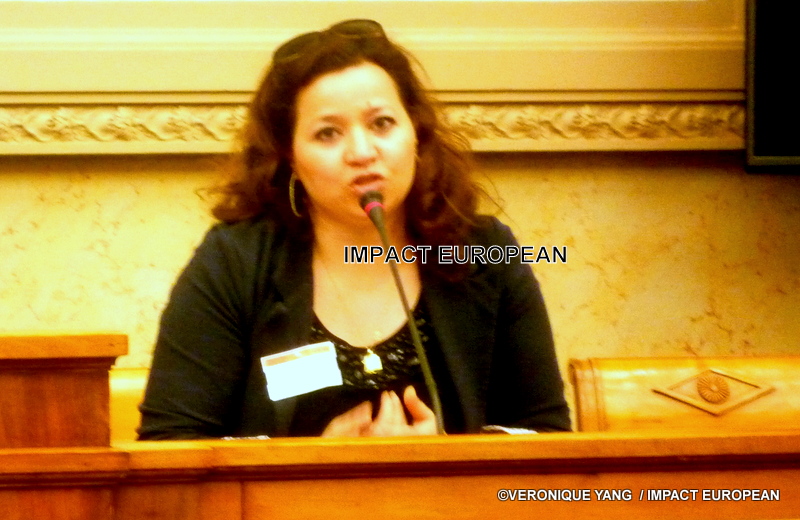
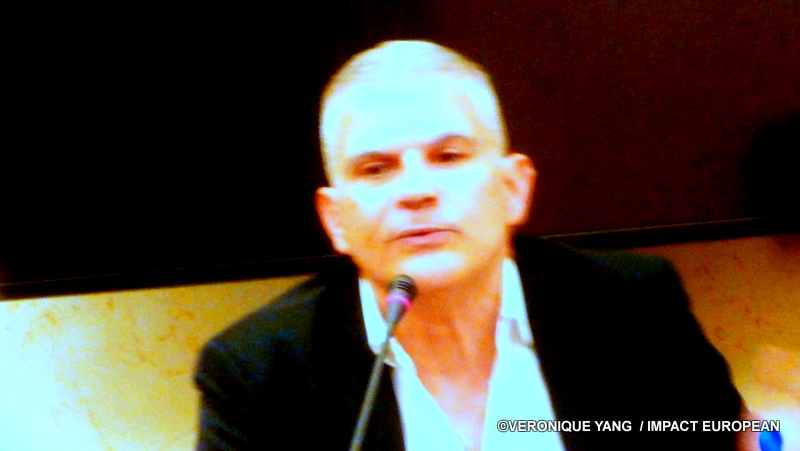
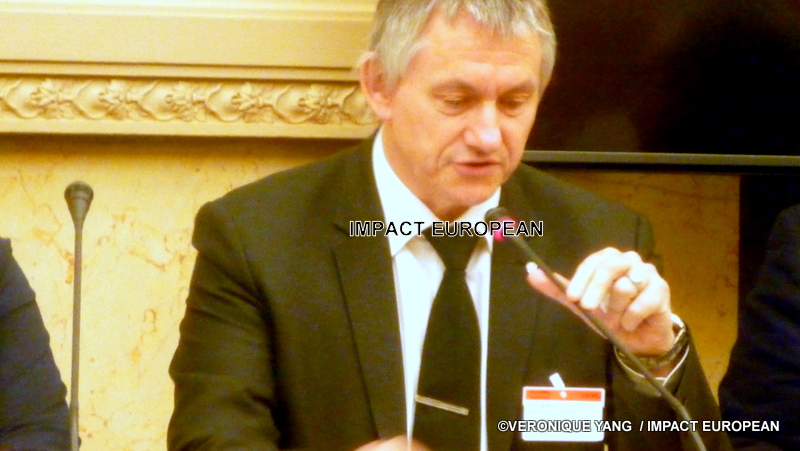
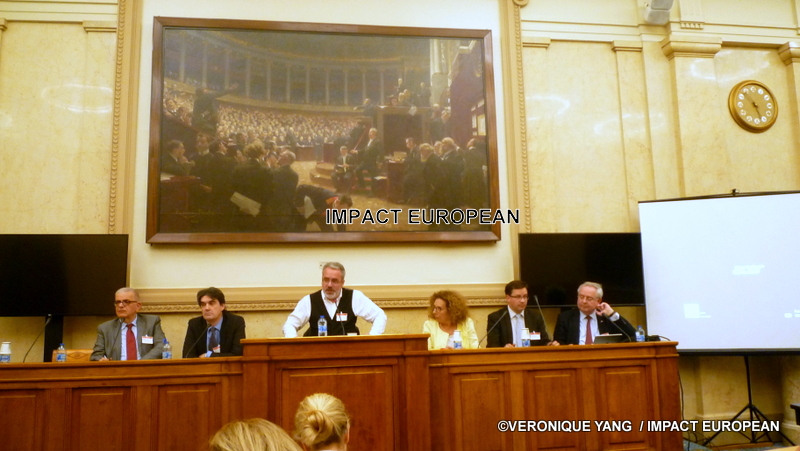
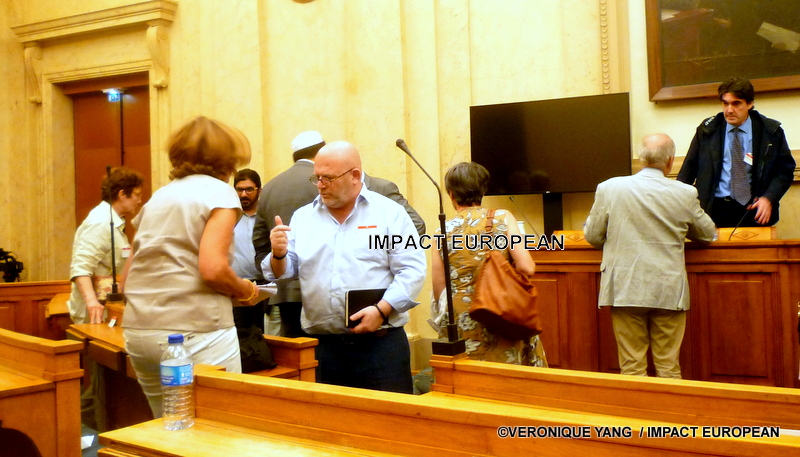
More Stories
European Farmers Angry Over the EU–Mercosur Trade Deal
Brigitte Bardot dies at 91: farewell to a rebellious cinema icon and tireless defender of animal rights
Berlin, Strategic Crossroads: Ukraine, European Security, and the Peace Economy